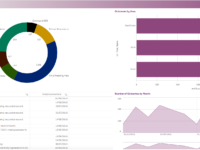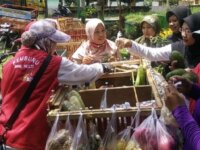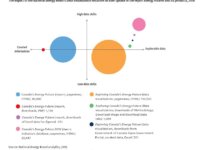The Estonian state offers families all different types of family benefits that new parents had to apply for. We found that such an important benefit should not be claimed like that. We built an IT system that allows us to offer benefits to families in a proactive way. Ou innovation is as simple as that - "congratulations on having a baby, here are your benefits!" Because the baby requires attention, love and of corse time, why waste it on communicating with the state.
Innovation Tag: Data
Insight Bristol is an interagency analytics hub between Bristol City Council and Avon and Somerset Police. Its core creation is a database of families' risk and vulnerability indicators, together with targeted risk modelling, which has been embedded into operational practice. This has created a fundamental shift in public sector working by developing a proactive approach to early intervention, saving millions of pounds of public money and improving outcomes for children and families.
Case Study
Protecting public health and reducing the availability of illicit tobacco products through the…
Tobacco use is extremely harmful to health and its illicit trade causes billions in tax revenue losses each year. The EU Tobacco Products Directive (TPD) provides for the establishment of a tracking and tracing system that enables the authorities to follow the movements of every packet of the 26 billion or more sold or produced in the EU, along every step of the supply chain, via real-time reporting by industry. The system is a tool for authorities in implementing their tobacco control policy.
In Banyuwangi of Indonesia, one of the districts in East Java, 16 pregnant women died in 2015, as well as 28 babies. The largest contributing factor was a lack of data concerning the existence and whereabouts of women with high-risk pregnancies. So, in 2016, Sempu Public Healthcare Center launched an innovative solution using female vegetable sellers on motorbikes as high risk pregnancy seekers. As a result, the number of women and babies dying during and/or shortly after childbirth fell to…
The municipality of Zuidhorn (now Westerkwartier) created the Child Package, based on the principles of Blockchain. The Child Package is a scheme intended for children from low-income households. Residents can log in on a website and use a QR-code to pay for child products at participating regional businesses.
Case Study
Libellula – a civic monitoring lab and a format to build and sustain a local civic monitoring…
Libellula is a laboratory for civic monitoring of local public spending and a format to build and sustain a local civic monitoring coalition. The first lab is based in Messina, Sicily. Moving from monitoring a specific case, Libellula aims at building a civic multi-stakeholder coalition which, while monitoring, simultaneously cultivates skills and capabilities of those involved to advocate for transparent and collaborative public spending in order to address the misuse of public money.
To encourage data-driven decision making in public sector, University of Latvia and Microsoft Innovation Center developed a “Data challenge” platform and methodology. Aim of the initiative is to bring together teams of public sector officials and data analysts and in few weeks to create several AI solution prototypes for a specific public sector challenge giving the organisation an opportunity to explore innovative, data-driven solutions that they eventually can develop and implement in…
In 2016 the NEB launched the Data Visualization Initiative to face the challenge of producing usable and useful data to go beyond using new technologies to deliver better service to citizens. It created multiple products from the same information to expand public participation in the energy dialogue and enable evidence-based decision-making. These products include interactive data visualizations and other materials, such as high school lesson plans, as a new way to engage experts and nonexperts.
Case Study
Partnering for success: a regional monitoring system for social equity and inclusive development
A multistakeholder partnership created a regional indicators-based monitoring system to track pro-poor health policy change across the Southern African Development Community (SADC), a low-income region beset by socio-economic costs of a high disease burden. This stimulated SADC’s Result-Based Regional Monitoring and Evaluation initiative. Extending to all SADC priority areas, Results-Based Monitoring and Evaluation (RBME) enables real-time tracking of regional performance, documentation of…
Make.org est une plateforme européenne de mobilisation citoyenne autour d’actions de transformation de la société. Dans ce cadre, Make.org développe une solution digitale de consultation massive, totalement inédite, capable de faire participer autour d’une question simple d’intérêt général, plusieurs milliers de citoyens, dans plusieurs langues, et de restituer les résultats de cette consultation en ligne, de manière quasi instantanée. Cette solution est complétée des…



